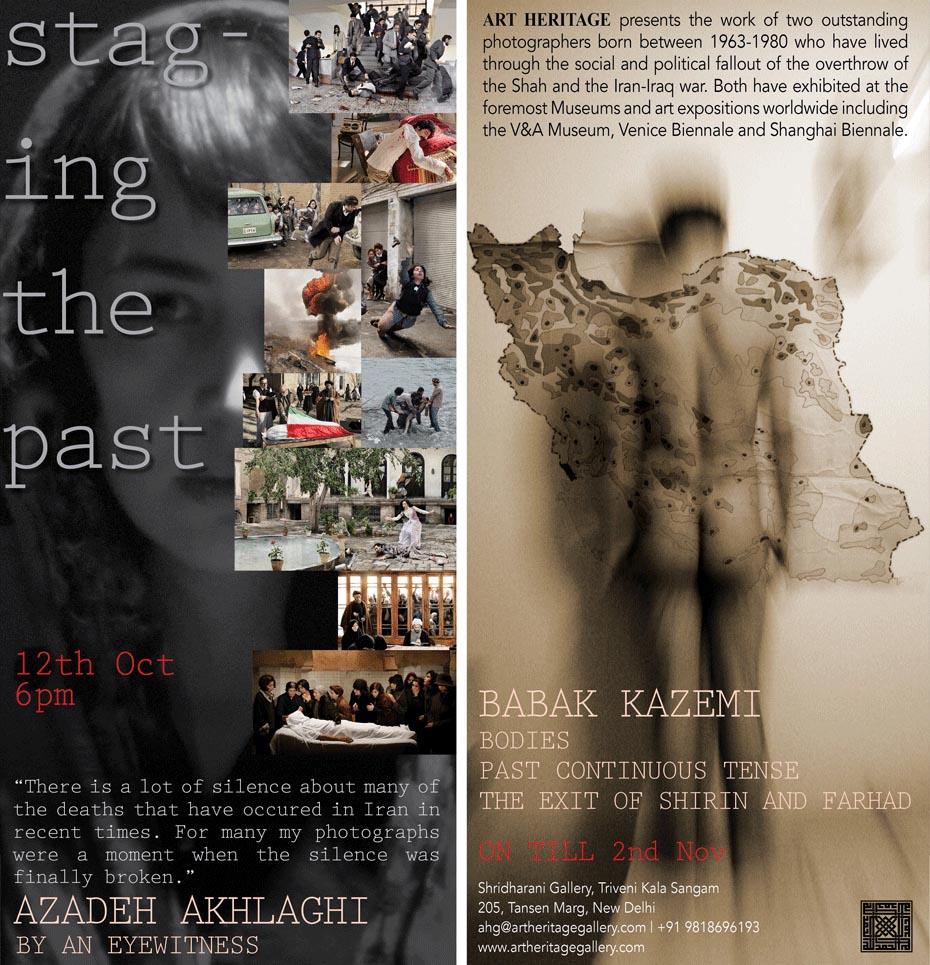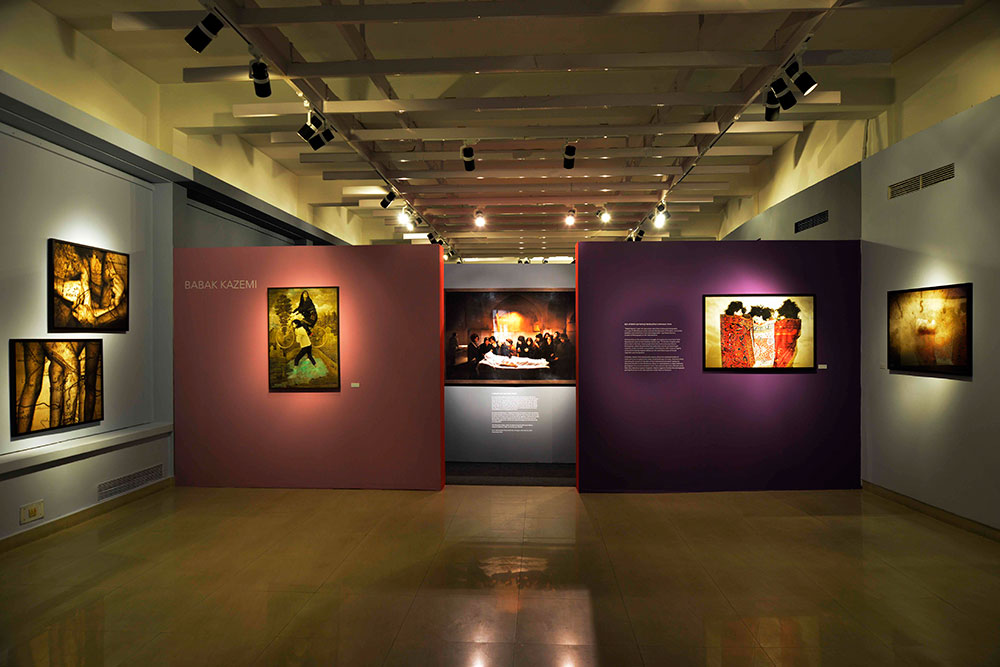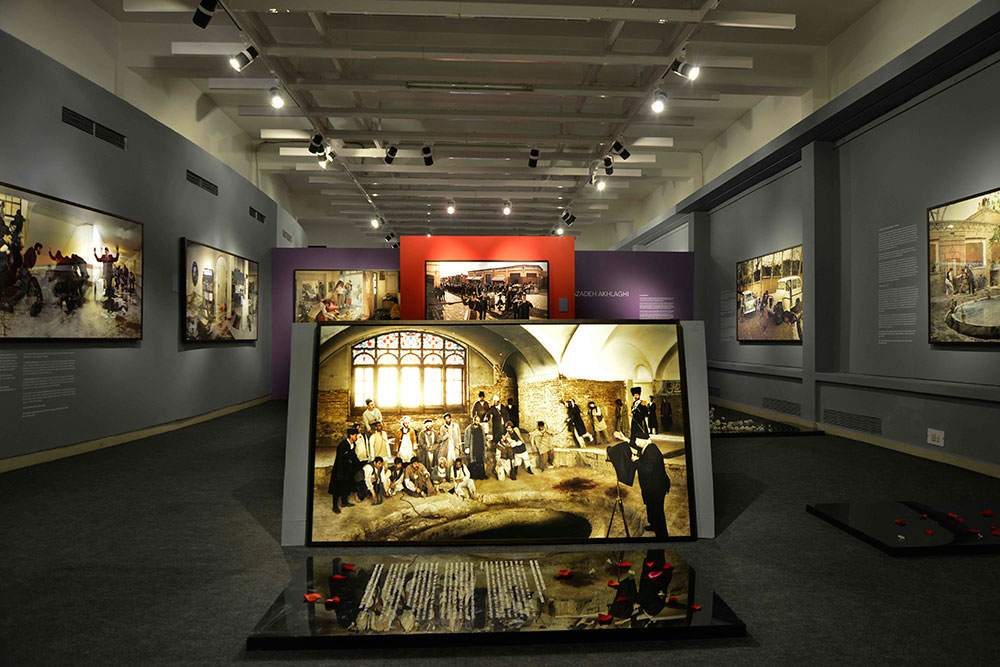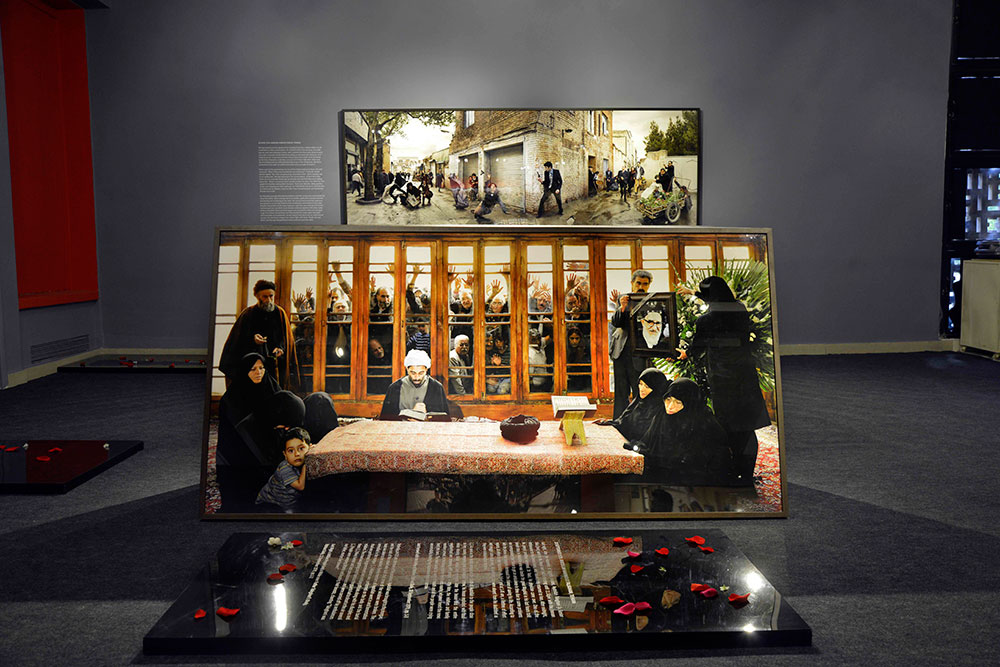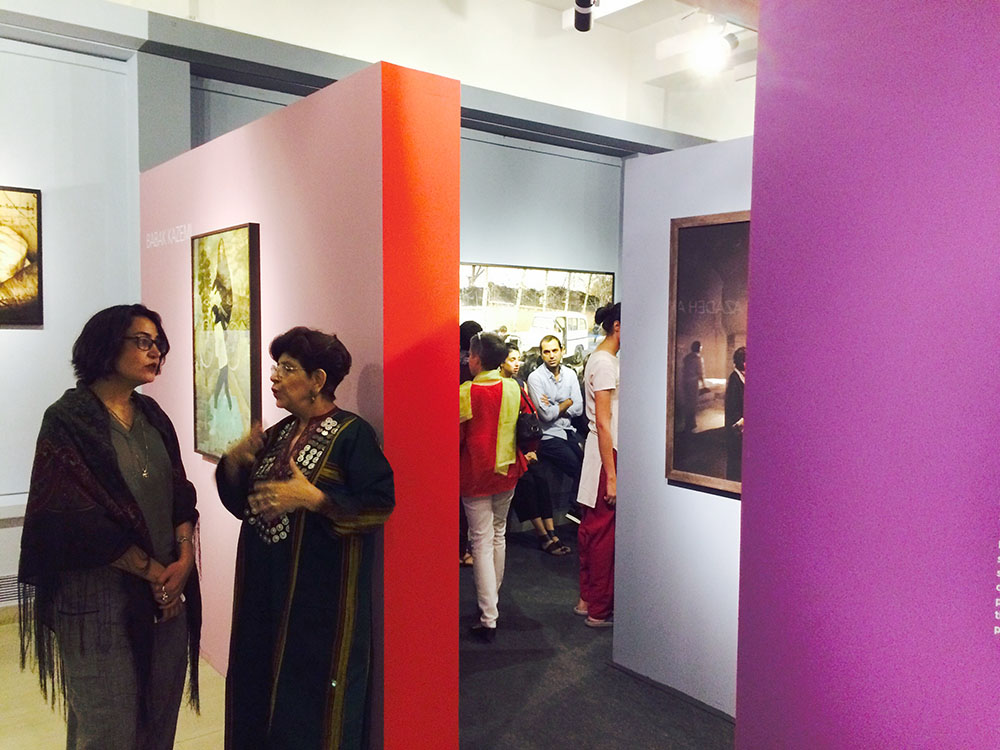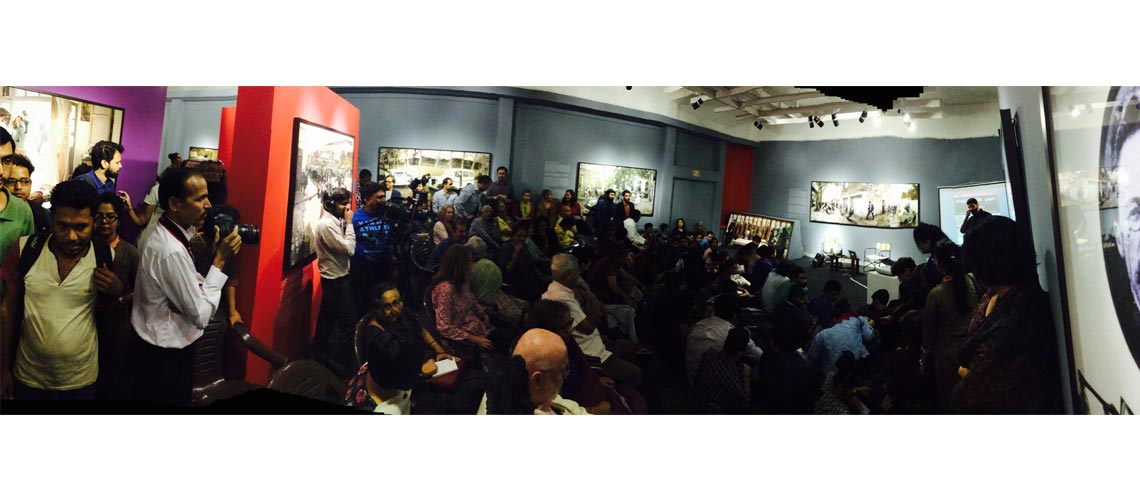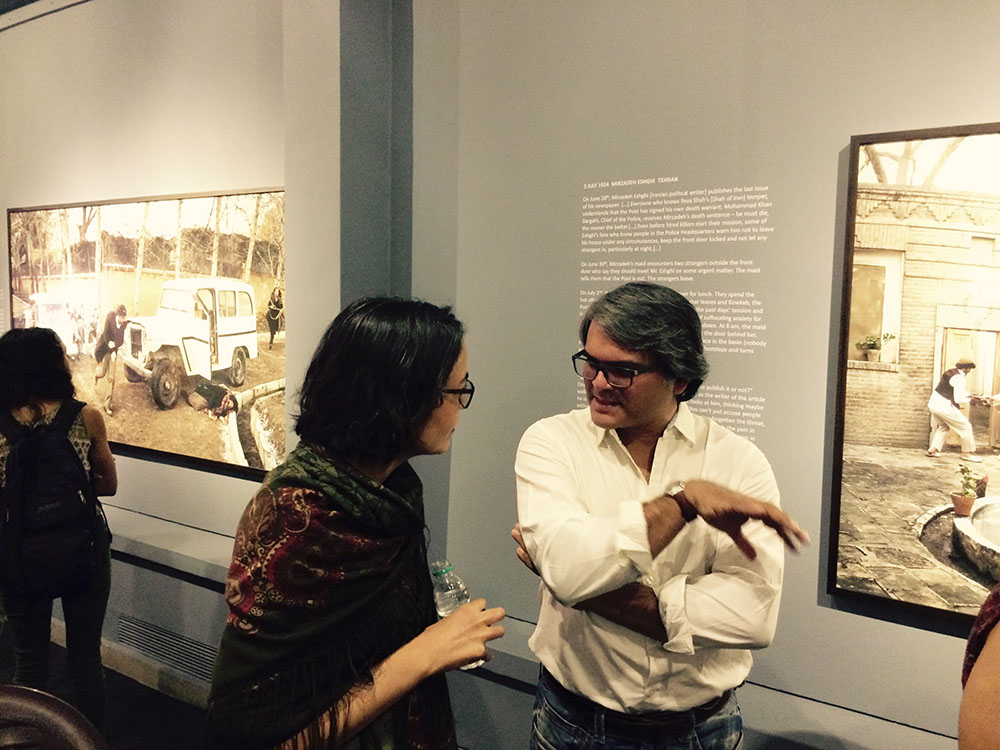PAST EXHIBITION
Staging the Past
In Iran the awareness that too direct an approach risks official wrath has played its part in driving young Iranian photographers towards conceptualizing a poetic visual language. Born between 1963 and 1980 they have lived through the social and political fallout of the overthrow of the Shah and the Iran-Iraq war, a period of practically continuous censorship. As a consequence many images reveal a tendency towards ‘staged’ photography, which is a renewed form of the tableau. Weaving hard facts of a documentary nature with a poetic imagination that draws on the rich, spiritual aesthetics of Iran’s past, contemporary photographers like Azadeh Akhlaghi and Babak Kazemi create a textual poetry where resistance becomes a performance act.
In Azadeh Akhlaghi’s series By an Eyewitness the mis-en-scene or staging is of supreme importance. Akhlaghi’s ‘action’ shots are based on written ‘official’ eyewitness accounts that detail the assassinations of known left-leaning revolutionaries or individuals in Iran. Recreating the moment of their assassinations, Azadeh is able to capture a hidden or censored historical memory, so that it can be shared, reflected upon and finally, acts as a powerful symbol of resistance itself. Creating a panorama of 17 assassinations that took place between 1908-1998 Azadeh startlingly inserts herself in each image, wearing a red chador, becoming thereby a bystander or eyewitness to these historical assassinations, giving the series it’s title….. By an Eyewitness.
Listen to Azadeh talk about her work here.
The reality of being exiled within the country itself, is a conundrum that has led a practitioner of photography like Babak Kazemi to realize that photography does not exist as art alone. Babak shot to prominence with his series The Exit of Shirin and Farhad, Bodies and Past Continuous Tense. Commenting on the contemporary struggle of couples who must leave their homeland to find freedom Kazemi says, “It’s hard to imagine what life or love is like here. Some people leave the country because they’re homosexual, others because they love each other, but don’t want to get married, as that would be unacceptable”. Revisiting the 16th-century tragedy of the Shirin/Farhad Kazemi, reflects on this issue of forced migration and immigration.
In Bodies Kazemi, with equal poetic nuance, allows the entwined bodies of homosexual lovers to splay across sepia-toned landscapes of maps, their bare limbs stretching far beyond the borders of their delineated homeland.
In Past Continuous Tense, Kazemi superimposes a single cell phone photograph of a cloud on locations other than the one where it was shot, with the result that very real places appear imaginary. Kazemi suggests thereby that photographs perhaps have less to do with objective reality than our own fantasies.
Date
12 Oct - 2 Nov 2016
Artists
Azadeh Akhlaghi, Babak Kazemi
Medium
Photography
